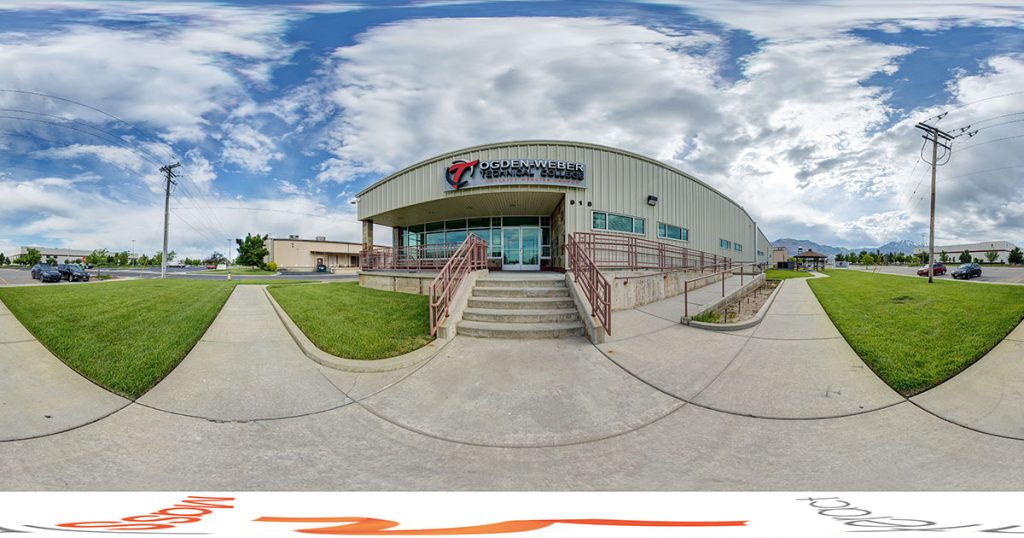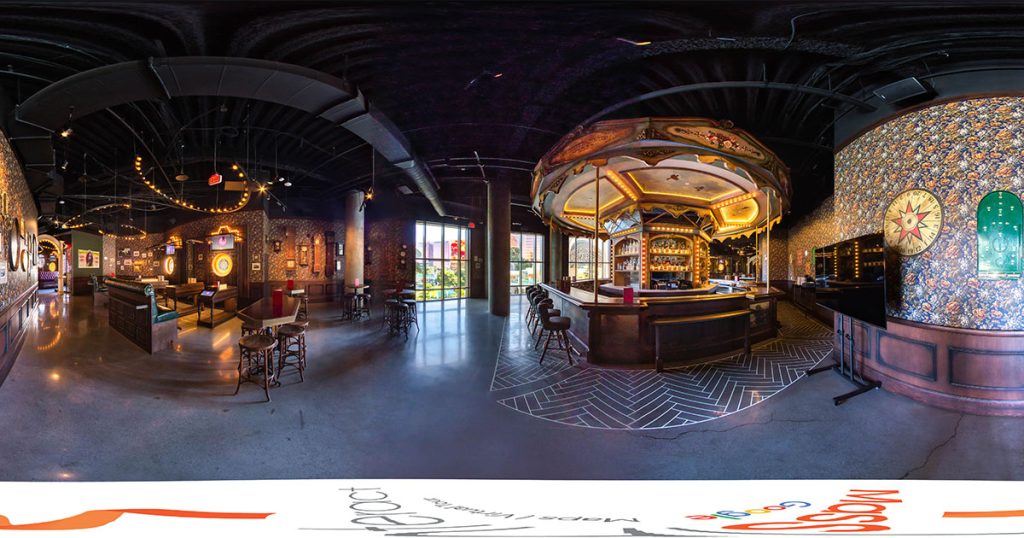As we traverse the digital landscape, the magnetic allure of visual content becomes increasingly pivotal in drawing potential customers. This is especially true in the hospitality sector, where the advent of virtual tour services has revolutionized the way hotels flaunt their offerings and refine the booking journey for their customers. These virtual tours, serving as immersive and interactive digital passports, enable guests to embark on a sensory exploration of the hotel’s facilities, rooms, and amenities, right from the comfort of their own screens, prior to finalizing a reservation. This article explores the benefits of hotel virtual tours and how they can significantly impact a hotel’s booking rates. Let’s delve into the key reasons why investing in virtual tour services can be a game-changer for your hotel.
What are Virtual Tours ?
Virtual tours are interactive multimedia presentations that allow users to explore a location remotely. They provide a digital representation of physical space, typically using 360-degree images or videos that are seamlessly stitched together. Users can navigate through the space, click on hotspots for more information, and even make bookings directly using the tour portal. Virtual tours can be accessed on various devices, including desktop computers, smartphones, and tablets.
In recent years, virtual tour technology has advanced significantly, incorporating features like virtual reality (VR) and augmented reality (AR). VR allows users to feel as if they are physically present at the location, while AR overlays additional information or virtual objects onto the real-world view. Virtual reality hotel tours are an innovative way for hotels to showcase their properties, offering potential guests an immersive and interactive experience that closely mimics an in-person visit.
How Virtual Tour Services can Boost Your Hotel’s Booking ?
Enhancing Guest Engagement
Virtual reality hotel tours provide an engaging and interactive experience for prospective guests, allowing them to virtually explore the hotel from the comfort of their own homes. By incorporating high-quality 360-degree imagery and videos, hotels can create a visually stunning representation of their property, highlighting its unique features and ambience. This immersive experience significantly increases guest engagement and captures their attention, leading to a higher likelihood of making a reservation.
Showcasing Room Varieties and Amenities
One of the many challenges hotels face today is effectively showcasing their different room types and amenities. With virtual tour services, hotels can provide an accurate representation of their rooms, enabling potential guests to visualize the space and decide on the most suitable option. By offering a virtual walk-through of the rooms, guests can assess the size, layout, décor, and facilities, which instills confidence and reduces the likelihood of surprises upon arrival. Moreover, virtual tours can showcase the hotel’s common areas, such as the lobby, dining areas, fitness center, spa, and pool, allowing guests to evaluate the overall experience.
Building Trust and Transparency
In the era of online booking, trust is paramount for potential guests. Virtual tours help establish trust and transparency by providing an authentic representation of the hotel. By offering an unbiased view of the property, guests gain confidence in the hotel’s offerings and are more likely to proceed with their booking. Virtual tours eliminate any skepticism or doubts about misleading photographs or biased descriptions, as guests can explore the hotel independently and assess its suitability for their needs.
Targeting the Millennial Audience
Millennials, the largest consumer segment in the travel industry, value experiences over material possessions. Virtual tours cater to their preferences by providing a digital experience that aligns with their technologically driven lifestyle. This demographic appreciates the ability to explore a hotel visually and make informed decisions based on their preferences. By incorporating virtual tours into your marketing strategy, hotels can effectively target and engage the millennial audience, thereby increasing the likelihood of bookings from this lucrative segment.
Leveraging Social Media and Online Platforms
Virtual tours are considered highly shareable content on social media platforms. By integrating virtual tours into your hotel’s website as well as platforms like Facebook, Instagram, and YouTube, you can increase the visibility of your property. Potential guests can easily share the virtual tour with their friends and family, generating organic reach and word-of-mouth marketing. Furthermore, online travel agencies can feature virtual tours on their websites, giving your hotel an advantage over competitors and attracting more potential guests.
Best Practices for Creating Effective Virtual Tours for Hotels
- Capture High-Quality Images and Videos: Invest in professional-grade equipment and techniques to capture high-resolution images and videos. Pay attention to lighting, composition, and aesthetics to create visually stunning virtual tour content. High-quality visuals will provide potential guests with a clear and realistic view of your hotel’s rooms, amenities, and common areas.
- Showcase the Key Selling Points of Your Hotel: Highlight the unique features and attractions that set your hotel apart. Whether it’s a stunning view, luxurious spa facilities, or state-of-the-art conference rooms, make sure to prominently feature these aspects in your virtual tour. Capturing the attention and interest of potential guests with these key selling points can significantly boost your booking rates.
- Provide Detailed Descriptions and Information: While visuals are essential, accompany your virtual tour with comprehensive descriptions and information about the rooms, amenities, and services. Include important details such as room dimensions, available amenities, and any special features. This will help potential guests make informed decisions and reduce any uncertainties they may have.
- Keep the Virtual Tour Navigation Intuitive and User-Friendly: Ensure that the interface of your virtual tour is easy to navigate and user-friendly. Implement intuitive controls that allow users to move smoothly between areas, zoom in and out, and access additional information effortlessly. A seamless and enjoyable user experience will enhance engagement and increase the likelihood of bookings.
- Promote and Share Your Virtual Tour: Actively promote and share your virtual tour across various channels. Feature it prominently on your hotel’s website, social media pages, and online travel portals. Encourage guests to share the virtual tour with their networks, generating organic reach and word-of-mouth marketing. The more visibility your virtual tour receives, the greater its impact on increasing your hotel’s bookings.
Conclusion
In the fiercely competitive hotel industry, leveraging technology to enhance the booking experience is vital. Virtual tour services provide hotels with an innovative way to showcase their offerings, engage potential guests, and increase their booking rates. By providing an immersive and interactive experience, hotel virtual tours enable guests to explore the hotel’s facilities, rooms, and amenities, building trust and confidence in their decision-making process. Moreover, hotel virtual tours cater to the preferences of the millennial audience seeking unique experiences and value-transparency in their booking process. By investing in virtual tour services, hotels can stay ahead of the curve and tap into this emerging technology to boost their growth. Thus, it’s safe to say that virtual reality tours increase revenue and also improve the overall rate of booking.






















